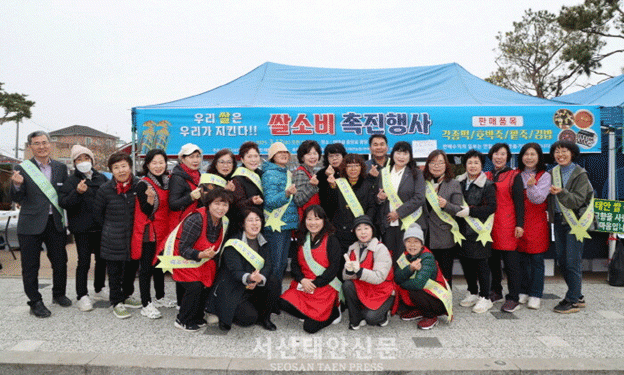The Taean County Women Farmers’ Association recently organized a rice consumption promotion event to support local rice farmers and increase public awareness of rice-based foods. The event featured tastings and sales of traditional rice dishes, drawing significant community participation. Such initiatives are crucial in addressing the decline in rice consumption and ensuring the sustainability of rice farming.
The Declining Trend of Rice Consumption and Its Impact
Rice consumption in South Korea has been steadily decreasing for decades. According to Statistics Korea, the annual per capita rice consumption dropped from 132.7 kg in 1980 to 56.7 kg in 2023, marking a more than 50% decline. This trend poses a serious challenge for rice farmers, as demand shrinks while production costs continue to rise.
At the same time, rice farming remains a critical part of Korea’s agricultural sector. The government has implemented various policies, including rice production adjustments and promotional campaigns, to stabilize the market. Events like the Taean County Women Farmers’ Association’s rice festival play an essential role in rekindling interest in rice-based foods and supporting local farmers.
Revitalizing Rice Demand Through Community Engagement
During the event, attendees enjoyed traditional rice-based foods such as tteok (rice cakes), sikhye (sweet rice punch), red bean porridge, pumpkin porridge, and mini kimbap. By highlighting the versatility and nutritional benefits of rice, the event successfully encouraged greater appreciation for locally grown rice.
Additionally, the event organizers collaborated with local advocacy groups to promote the Garorim Bay Bridge project, which is expected to improve transportation and boost regional economic development, indirectly benefiting local agriculture.
A Model for Supporting Local Farmers
Community-driven events like this not only help increase rice consumption but also strengthen connections between consumers and farmers. By directly engaging with the public, farmers can promote the quality and benefits of locally produced rice, making it more attractive compared to imported alternatives.
The Taean County Women Farmers’ Association also demonstrated its commitment to social responsibility, as event proceeds will be donated to help those in need. This highlights the role of agricultural communities in fostering both economic sustainability and social welfare.
Rice farming is at a crossroads, and declining consumption threatens the livelihoods of many farmers. However, community-driven initiatives like the Taean County rice promotion event prove that targeted efforts can rekindle consumer interest in rice-based foods. Supporting local rice production through public awareness, government policies, and innovative marketing strategies will be crucial in ensuring the long-term sustainability of rice farming.
Error




